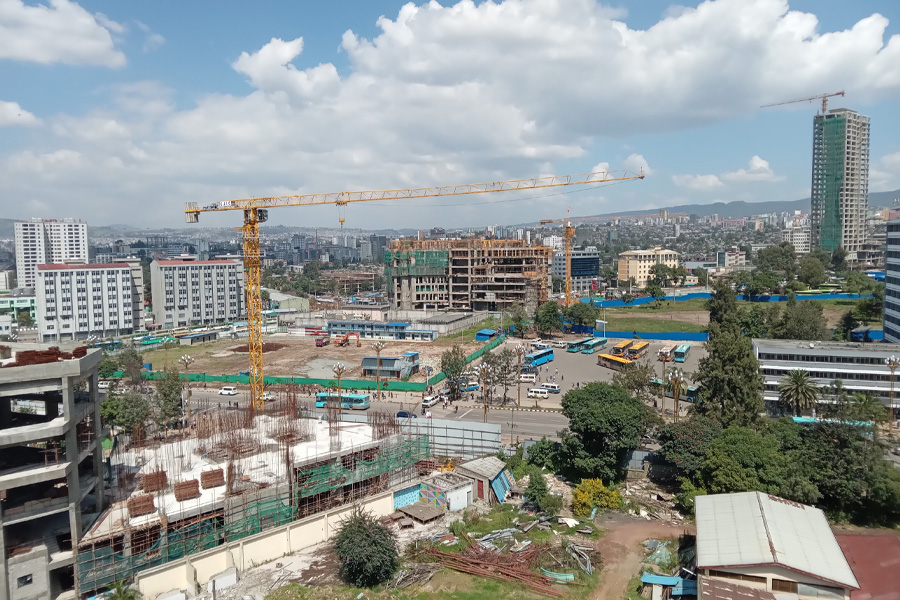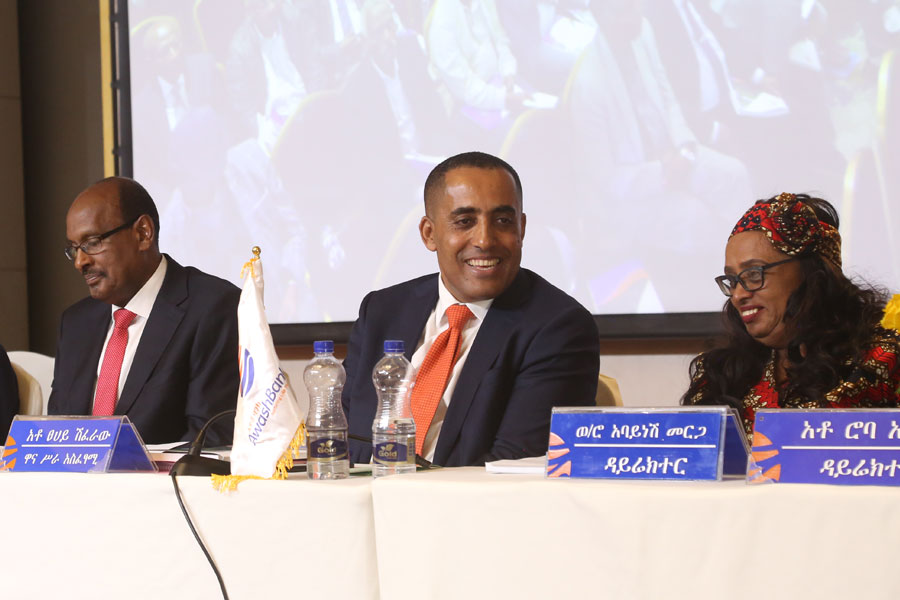
Fortune News | Nov 24, 2024
International Monetary Fund (IMF) has projected that Ethiopia’s economic recovery under the new macroeconomic reform will advance slowly, tempered by tight financial conditions and lingering uncertainty as economic players adjust to a revamped fiscal environment. Inflation is expected to peak at around 29pc in 2025, as the first review of Ethiopia’s Extended Credit Facility (ECF) reveals.
The IMF report, released last week, underlined that stringent financial controls and the cessation of monetary financing for fiscal deficits should help ease inflationary pressures, while temporary fiscal spending is sought to buffer socioeconomic impacts. Despite the reforms, unmet demand for foreign exchange and lingering inflationary risks remain, as currency supply to the market has progressed slower than anticipated.
Economic analysts caution that the effects of the shift to a flexible exchange rate and other reforms are still unfolding. Macroeconomist Tewodros Mekonnen (PhD) noted, “while we have seen some stability, inflationary pressures are likely as the full scope of the transition takes shape.”
The IMF’s conservative growth projection for Ethiopia stands at 6.5pc for this fiscal year, a figure notably lower than the 8.4pc forecasted by Prime Minister Abiy Ahmed (PhD)during a recent parliamentary session. This discrepancy displays the cautious stance taken by the IMF, which, alongside national reforms, approved a 340.7 million dollar disbursement in August, the first in a 3.4 billion dollar four-year credit package to stabilize the economy.
Tight fiscal and monetary policies are already impacting local businesses, noted Martha H.Mariam, an advisor to the Vice Governor of the Central Bank. She said the current policies have been effective in containing inflation, but adjustments will likely follow while finding a balance between restrictive and supportive measures.
The report suggests promising yet tentative improvements such as the gap between the parallel and official exchange rates has narrowed remarkably, shrinking from 96pc to around five percent. This convergence has bolstered investor confidence but remains delicate amidst regional conflicts and fluctuations in export earnings.
IMF also praised Ethiopia’s gradual phasing out of deficit financing for the federal government, coupled with reforms to the Treasury bill market and new open-market operations by the National Bank of Ethiopia (NBE). Although the regulator recently auctioned 30 million dollars to banks to ease foreign exchange pressures, unmet demand persists.
Advising caution, Tewodros urged the Commercial Bank of Ethiopia (CBE) to avoid speculative currency practices that could heighten financial risks.
“Maintaining reserves responsibly is essential,” he said. “Protection mechanisms must be in place to safeguard the economy.”
Under the ongoing reform, structural issues in the state-owned sector remain a challenge. Persistent operating losses have forced the CBE to cover debts without sovereign guarantees, an issue that could undermine the government’s efforts to manage its debt load effectively. Parliament’s recent approval of a 900-billion-Birr capital injection into the CBE accentuates the urgent need for fiscal fortification to stave off potential collapse and avert instability in the banking sector.
A week before the report was released, Prime Minister Abiy praised the narrowing of the black-market exchange rate gap, attributing it to strengthened foreign trade, with exports bringing in 1.5 billion dollars in the last quarter alone. Gold exports contributed half a billion dollars, marking progress toward the government's ambition of economic strength.
The IMF’s evaluation also noted that tax revenues, currently at 6.3pc of GDP, remain critically low, limiting Ethiopia’s ability to finance essential services and post-conflict reconstruction. Comprehensive reforms in tax policy and state-owned enterprises, alongside an expansion of social safety nets, will be critical for ensuring that the benefits of economic recovery reach vulnerable populations.
“Macroeconomic reforms are a necessary step, not a cure-all,” Tewodros said, urging the government to prioritise investments in infrastructure, human capital, and essential services. He said that prudent fiscal policies must replace unsustainable practices like unchecked money printing, which could derail Ethiopia’s fragile economic progress.
In its concluding statement, the IMF reaffirmed its support for Ethiopia’s economic roadmap, recognising the country’s progress while underlining the need for sustained discipline. The NBE's ongoing adjustment of reserve requirements and fiscal injections remains essential for maintaining liquidity and fostering economic stability, the report stressed, as it called on authorities to accelerate reforms aimed at revenue generation and sustainable growth.
The next assessment is expected in 2025 when Ethiopia’s inflation is hoped to stabilise, with a long-term growth projection of eight percent as comprehensive reforms are fully realised.
PUBLISHED ON
Nov 09,2024 [ VOL
25 , NO
1280]

Fortune News | Nov 24, 2024

In-Picture | Nov 16,2024

Fortune News | Oct 07,2023

Radar | Nov 20,2023

Advertorials | Sep 05,2024

News Analysis | Dec 09,2023

Agenda | Jul 20,2025

Life Matters | Aug 13,2022

Fortune News | Oct 25,2025

Radar | Sep 14,2025

Dec 22 , 2024 . By TIZITA SHEWAFERAW
Charged with transforming colossal state-owned enterprises into modern and competitiv...

Aug 18 , 2024 . By AKSAH ITALO
Although predictable Yonas Zerihun's job in the ride-hailing service is not immune to...

Jul 28 , 2024 . By TIZITA SHEWAFERAW
Unhabitual, perhaps too many, Samuel Gebreyohannes, 38, used to occasionally enjoy a couple of beers at breakfast. However, he recently swit...

Jul 13 , 2024 . By AKSAH ITALO
Investors who rely on tractors, trucks, and field vehicles for commuting, transporting commodities, and f...

Nov 1 , 2025
The National Bank of Ethiopia (NBE) issued a statement two weeks ago that appeared to...

Oct 25 , 2025
The regulatory machinery is on overdrive. In only two years, no fewer than 35 new pro...

Oct 18 , 2025
The political establishment, notably the ruling party and its top brass, has become p...

Oct 11 , 2025
Ladislas Farago, a roving Associated Press (AP) correspondent, arrived in Ethiopia in...